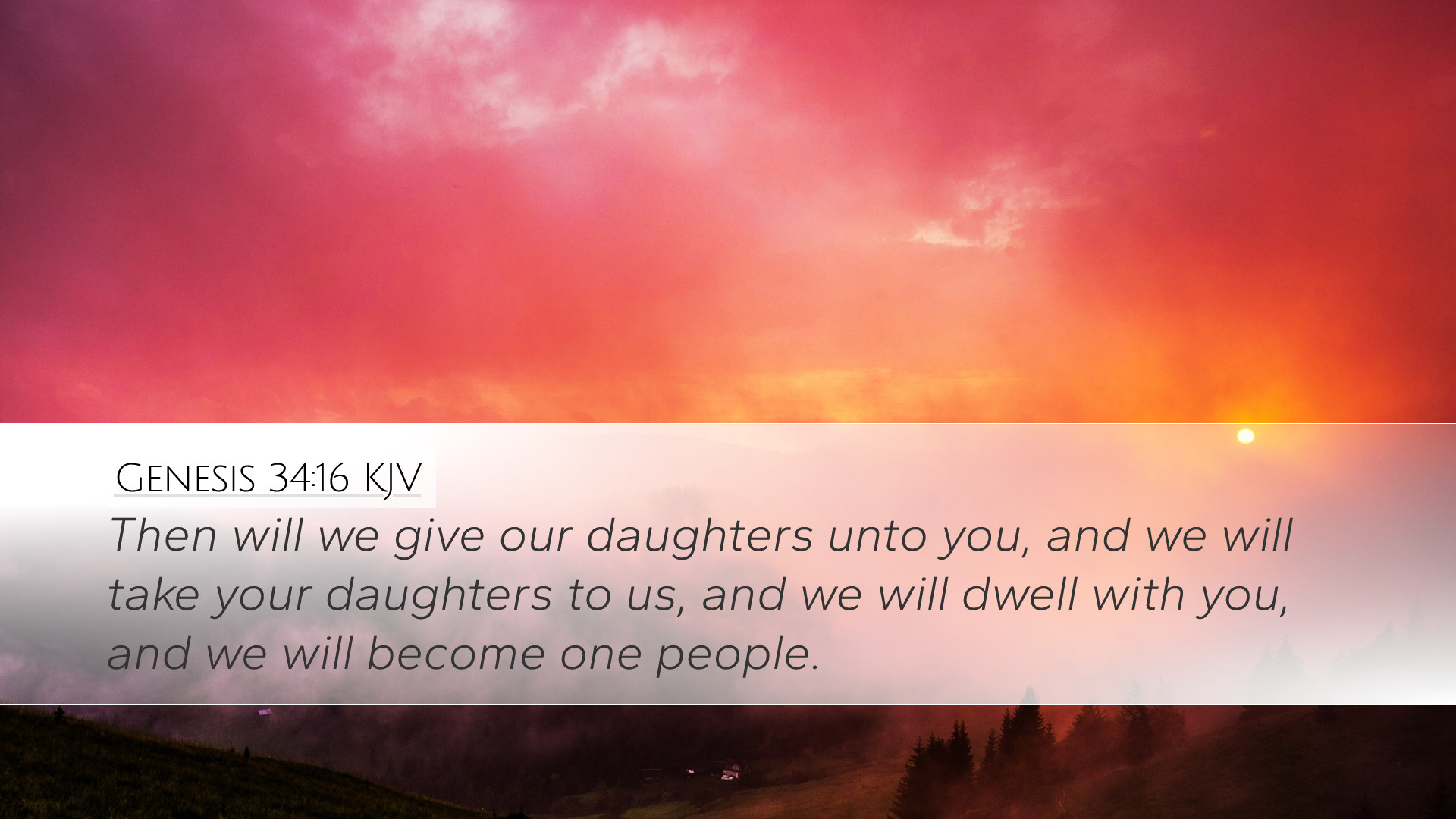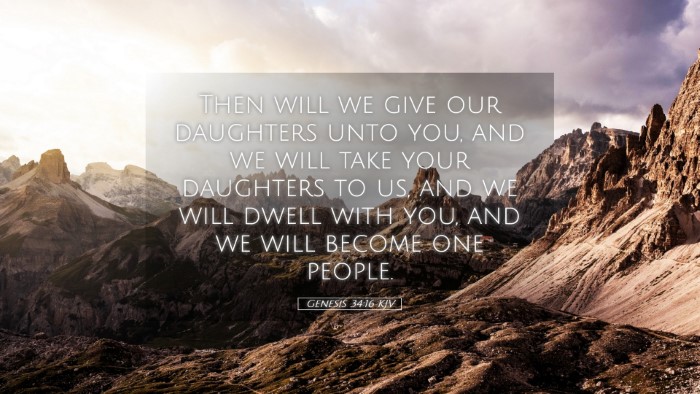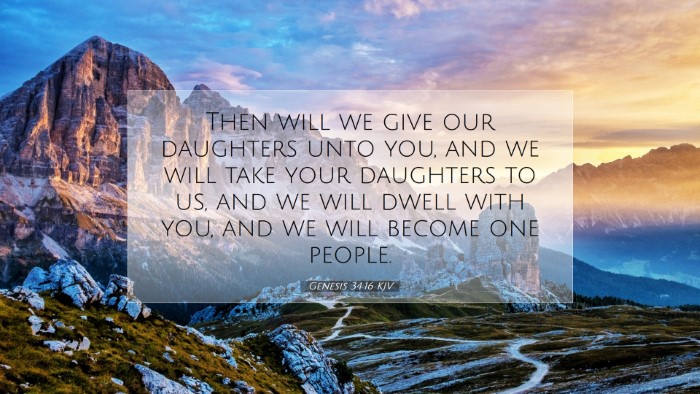Commentary on Genesis 34:16
Genesis 34:16 states, "Then will we give our daughters unto you, and we will take your daughters to us, and we will dwell with you, and we will become one people." This verse occurs in the context of a tragic narrative that unfolds after the defilement of Dinah, the daughter of Jacob, by Shechem, the prince of the city of Shechem. The subsequent actions and speeches of Jacob's sons reveal a complex interplay of familial loyalty, cultural identity, and moral outrage.
Context and Background
This passage invites an exploration of the cultural context in which these events take place. The marriage arrangements proposed in this verse aim to establish a relational covenant between two distinct groups: the Shechemites and the family of Jacob. It reflects the ancient Near Eastern custom of forming alliances through marriage.
Commentary Insights
The commentaries from various scholars offer different perspectives on this verse:
-
Matthew Henry's Commentary:
Henry emphasizes the troubling nature of Shechem's request in light of the circumstances surrounding Dinah's abduction and defilement. He notes that the offer of intercultural marriage is not merely a matter of personal relationships but also reflects the larger contention between the values of Jacob's family and those of the Shechemites. This verse illuminates the desperation that underlies Shechem's overture, as he wishes to legitimize his actions through a marriage alliance. The promise to become 'one people' conveys a desire for unity, yet through such alliances, there can be profound moral implications.
-
Albert Barnes' Notes:
Barnes highlights the cultural significance of marriage in the ancient world as a means of sealing agreements and ensuring peace between tribes. He suggests that the proposal made in Genesis 34:16 is an attempt to rectify the wrong that had been done to Dinah, albeit through flawed means. The tendency to resolve such grievous offenses through the promise of alliance and intermarriage is indicative of the cultural practices that governed relationships between different peoples. Furthermore, Barnes warns against romanticizing this act as a sincere gesture of goodwill, noting that ulterior motives are easily concealed amid the promises of unity.
-
Adam Clarke's Commentary:
Clarke offers a nuanced view of the negotiation process in this verse. He underlines that the response from Jacob’s sons does not emerge from a place of genuine acceptance, but rather serves as a calculated strategy to deceive Shechem and gain a measure of retribution for the wrong against their sister. Clarke elucidates the gravity of this situation, emphasizing that the conditions set forth in this verse are simply a means to an end. The discourse here reflects a broader theme in Genesis: the struggle for identity and justice within a framework that often prioritizes family honor over individual well-being.
Theological Reflections
The theological implications of Genesis 34:16 extend beyond mere narrative analysis and invite deeper reflection on the nature of community, justice, and moral integrity.
-
The Nature of Community:
This verse illustrates the tension that exists in forming social bonds in a world plagued by sin and conflict. The desire to become 'one people' speaks to an inherent human longing for unity and kinship but is complicated by moral actions that betray such unity. The invitation to merge two families under such conditions raises questions about the purity of motives in relational dynamics.
-
The Pursuit of Justice:
The events leading to this verse testify to the often complex and messy pursuit of justice. Dinah’s violation does not elicit a direct response from Jacob, leading to the calculative deception employed by his sons. This narrative underscores the importance of seeking justice through righteous means rather than through manipulative tactics. It serves as a reminder for contemporary believers about the means by which they pursue justice in their communities while maintaining their ethical integrity.
-
Cultural Identity:
As Jacob's family navigates their identity among surrounding peoples, their response in Genesis 34:16 highlights the challenges of remaining faithful to one's culture while interacting with others. The call to become 'one people' reflects broader themes of assimilation and the tension that often exists between maintaining distinctiveness and pursuing unity. This paradox is relevant for modern believers who encounter diverse cultures within their ministries.
Concluding Thoughts
Genesis 34:16 may seem like a mere negotiation in a tragic narrative; however, its implications reverberate through theological discourse and ethical considerations in community relationships. It reflects a critical moment that speaks to the human condition: one marked by the desire for unity, the complexities of justice, and the challenge of remaining true to one’s identity amidst a world often marked by moral ambiguity. For pastors, theologians, and scholars, this verse serves as a poignant reminder of the ongoing dialogue between culture, ethics, and community in their ministries and teachings.


